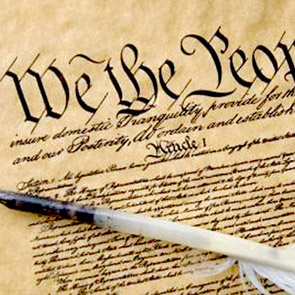We the People – Tues, Sept 18
by admin - September 18th, 2018
 On Thursday 9/15 our class will focus on the Constitution, and on the “Constitutional moment,” i.e. the era and cultural milieu in which it was framed. Your reading is Waldman pp. 35-50 and also the full text of the US Constitution. You’ll want to bring both of these items to class, if possible. The Constitution can be found in the back of any US history textbook you have on hand, or you can print a copy from the web, or download it as a mobile app onto your phone.
On Thursday 9/15 our class will focus on the Constitution, and on the “Constitutional moment,” i.e. the era and cultural milieu in which it was framed. Your reading is Waldman pp. 35-50 and also the full text of the US Constitution. You’ll want to bring both of these items to class, if possible. The Constitution can be found in the back of any US history textbook you have on hand, or you can print a copy from the web, or download it as a mobile app onto your phone.
Discussion Questions:
Are voting rights natural or granted? (i.e. are they in the Constitution, and if so, how defined?)
Should citizenship be linked to the right to vote?
Why the electoral college system?
Where / how often does the Constitution mention the words “citizen” or “citizenship”?

